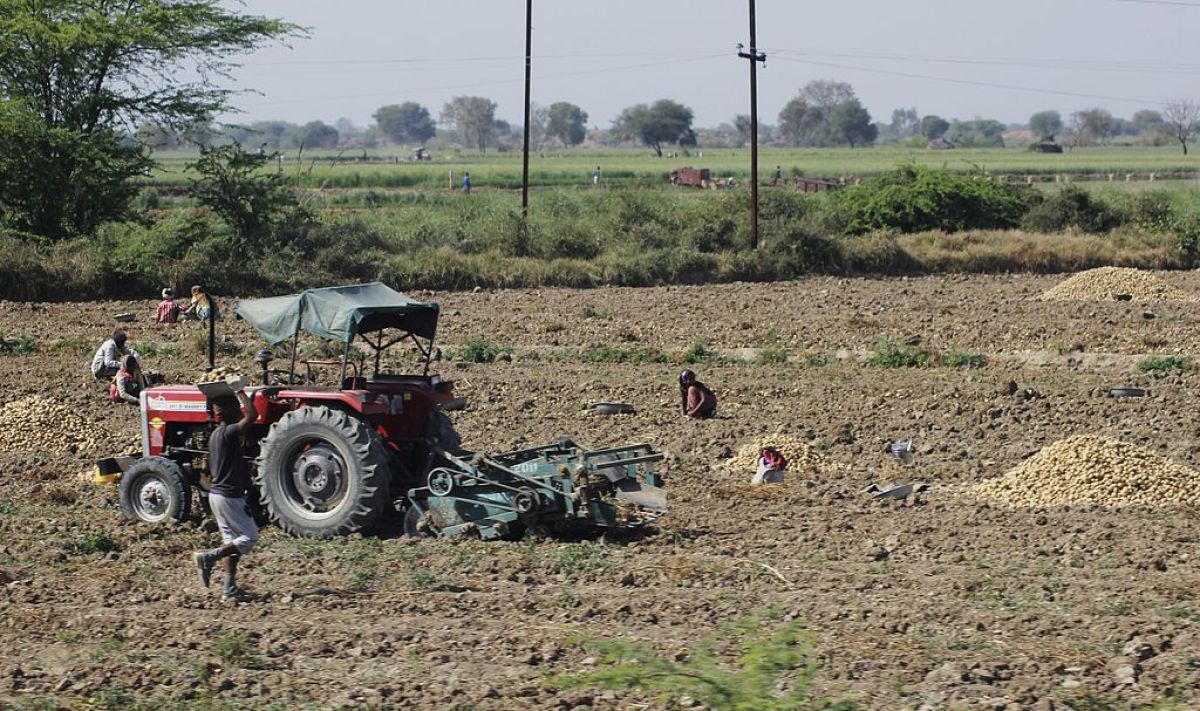
More than half of Indians make their living from farming. Pictured here are agriculture workers harvesting potatoes. (Suyash Dwivedi/Wiki Media Commons)
Protests by farmers in India continue to gain strength this week. They began in September in response to new laws passed by the Indian government. Until then, farmers sold exclusively to state-regulated markets (or mandis) which guaranteed a minimum support price (or MSP) that acted as a safety net for farmers. The new laws allow them to sell outside of these mandis.
Proponents of the new laws claim that farmers will benefit by having the freedom to sell to anyone they choose. But, according to the New York Times, many Indian farmers believe that the overhaul will pave the way for corporate takeovers of their small farms and lead to lower prices. Furthermore, there is widespread complaint that the new laws were rushed through parliament without consulting farmers or farmers' unions. The Minister of Food Processing, Harsimrat Kaur Badal, resigned in protest last September.
Farmers were reportedly already upset by new laws aimed at curbing pollution. These laws prescribe steep fines, prison time, or both if a farmer burns crop residue, although many farmers cannot afford more expensive alternatives. Modi's government has promised to help alleviate these costs, but most farmers have seen little assistance.
The protests began with tens of thousands surrounding the capital of New Delhi, drawing support from prominent Indian actors, singers, and athletes. The crowds now number in the hundreds of thousands, across several other cities and even abroad. Huge community kitchens have been set up to feed protesters, many of whom are members of the Sikh faith, which holds generosity as a central tenet.
The protests are seen as a rare check on controversial Prime Minister Narendra Modi's power. Modi, a notable ally of President Donald Trump, has been criticized in the past for what many see as anti-Muslim policies. His power has been seen by some as bordering on authoritarian, and opposition figures standing in solidarity with the protesters have reportedly been detained by state police.
More than half of Indians make their living from farming. The New York Times reports that farmers represent an important political constituency for Mr. Modi and his Bharatiya Janata Party. Farmers could also play a significan role in bringing India out of its debilitating, recession, driven by the coronavirus.
So far, however, talks between farmers, farmers' unions, and the government have been unsuccessful. Meanwhile, the protests continue to gain in strength and numbers, with no sign of slowing anytime soon.
Read More:
Explained: What is MSP and why farmers are protesting over it? (India Today)
Crowds Of Indian Farmers Gather For Days To Protest New Agriculture Laws (NPR News)
Indian Farmers’ Protests Spread, in Challenge to Modi (New York Times)
India’s Police Detain Opposition Leaders As Farmers’ Agitation Grows (New York Times)













